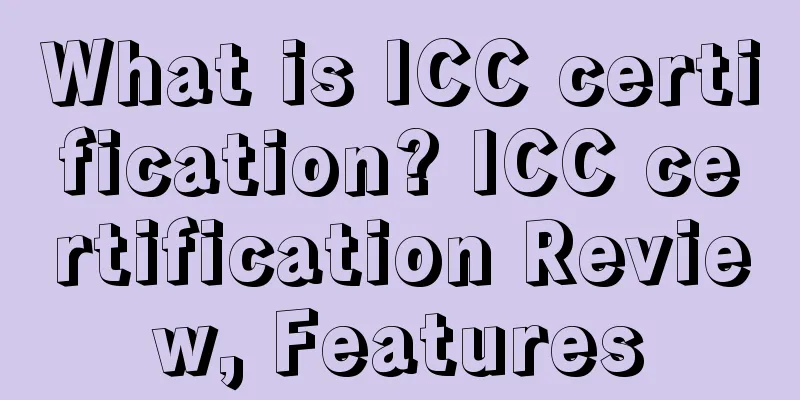What is ICC certification? ICC certification Review, Features

|
ICC certification (Import Commodity Clearance) is a compulsory product certification in the Philippines. For imported products, BPS enables the ICC certification procedure. About ICC Certification The ICC system applies to imported goods. For imported products that fall within the scope of the mandatory Philippine National Standards (PNS), after the imported goods are evaluated by the Philippine Bureau of Standards (BPS) to meet the corresponding Philippine national standards or internationally accepted foreign standards, BPS will issue an ICC license to the importer of the product, allowing it to apply the ICC mark. Imported products are subject to sampling inspection. In addition, the Philippines will conduct random market sampling inspections to ensure that imported goods meet the corresponding PS standard requirements. For specific certification implementation details, please refer to the Philippines' Administrative Order No. 5 issued in 2008, namely DAO 5:2008 - Amendment to the issuance of ICC for imported products. Legal requirements In order to protect the health and safety of consumers, the Philippine Bureau of Standards (BPS) has included some products in the list of compulsory certification products (the list is updated every year). For products on the list of compulsory certification products, in order to enter the Philippine market, a PS (Philippine Standard) license or ICC (Import Commodity Clearance) certificate must be obtained, and the PS and ICC logos must be affixed to the product or packaging. The PS logo is divided into a product safety logo and a product quality logo. The license is applied for by the manufacturer, and the ICC certificate is applied for by the importer. Product Range 1. Household appliances (air conditioners, electric fans, immersion water heaters, kitchen appliances (blenders, egg beaters, etc.), refrigerators, washing machines, etc. 2. Lamps and related products (fluorescent lamps, incandescent lamps, lamp holders, ballasts, Christmas lights/light strings, starters, etc.). 3. Wiring device (circuit breaker, metal wire junction box, plug and socket, PVC tape, switch). 4. Wires and cables (PVC soft wires, thermoplastic wires and cables). 5. Machinery/building materials (cement, steel pipes, tiles, iron sheets, flat glass, water pipes, pipe fittings, toilets, bathtubs, water tanks, washbasins, iron wires. 6. Chemical and other products (fire extinguishers, lighters, single chairs/stools, brake fluid, gas stoves, vehicle inner tubes, lead-acid batteries, matches, safety belts (seat belts) (windshields, rear lights, side seats, car tires). Certification Process Updates According to the latest "Memorandum Circular no 18-04 Series 2018 and memorandum Circular no 18-11 Series 2018" documents, the scope of relevant certification requirements in the Philippines has partially changed. The details are as follows: 1. The latest version requires the following equipment: electric fans, electric irons, blenders, microwave ovens, rice cookers, gas cylinders, coffee machines, televisions, CD/VCD/DVD/Blu-Ray players (Blu-Ray is newly added), toasters, stoves, hot plates, washing machines, refrigerators, and air conditioners. The mandatory certification date for these products is August 25, 2019. 2. The mandatory certification requirements for televisions have been expanded from the initial control of 45 inches to products within 55 inches. 3. Other household appliances such as electric grills, electric stoves, turbine boilers, induction stoves, electric juicers, electric food blenders, electric food processors, electric kettles, electric pressure cookers, electric slow cookers, and electric multi-purpose cookers are also required to be certified. 4. Washing machines and other washing equipment include the current vertical and horizontal drum methods, as well as fully automatic washing machines. 5. Rotary extractors are also included in the scope of certification. 6. The capacity of the refrigerator required to be certified is expanded to 567 liters. 7. Variable frequency air conditioning equipment is also included in the certification requirements. 8. The mandatory certification of ballast LED lamps has started from August 25, 2018, but those LED lamps that have been sold on the market before August 25, 2018, do not need to affix the PS or ICC certification mark before August 24, 2019. The difference between PS certification and ICC certification 1. The application documents are different. 2. The validity period of the certificates is different. 3. The certification modes are different, PS requires factory audit. 4. The certification logos are different. 5. The certification cycles are different, and PS takes a relatively longer time. |
<<: What is BSCI? BSCI Review, Features
>>: What is PS Certification? PS Certification Review, Features
Recommend
Valuation: 2 billion! Internet celebrity brand Allbirds will go public
When it comes to DTC brands (i.e. selling product...
Amazon Global Selling offers more tools and services to users in Malaysia
Amazon Global Selling offers more than 25 new inn...
What is Haimao Cross-border? Haimao Cross-border Review, Features
Haimao Cross-border is committed to building the f...
What is Rory? Rory Review, Features
Rory is an online sales website where medicine and...
What is Shanghai Yi Qiao? Shanghai Yi Qiao Review, Features
Shanghai Yiqiao Information Technology Service Co....
What is China Lesso? China Lesso Review, Features
China Lesso is a large domestic building material...
Shopee Vietnam site payment cycle changed to once a week
On March 25, Shopee issued an announcement that s...
What is Zipto? Zipto Review, Features
Zhimeitong is a leading one-stop solution provider...
What is Amazon's Price Protection Policy? Amazon's Price Protection Policy Review, Features
The Amazon Price Protection Program Policy is a p...
What is amaZervice? amaZervice Review, Features
<span data-docs-delta="[[20,{"gallery"...
Amazon's new fulfillment center delayed opening
According to foreign media reports, Amazon's ...
What is App Growing (Youmi Cloud)? App Growing (Youmi Cloud) Review, Features
App Growing (Youmi Cloud) is a mobile advertising...
The best-selling Ice and Fire in 2021: Some people’s net profit was cut by 300 million, and some companies turned losses into profits!
Recently, many major retailers have released thei...
Monthly visits reach 25 million! Italy ePRICE has more than 3 million registered users
According to data from the tameboy website, in 20...
What is OpenCart? OpenCart Review, Features
OpenCart is an easy-to-use, powerful open source ...









